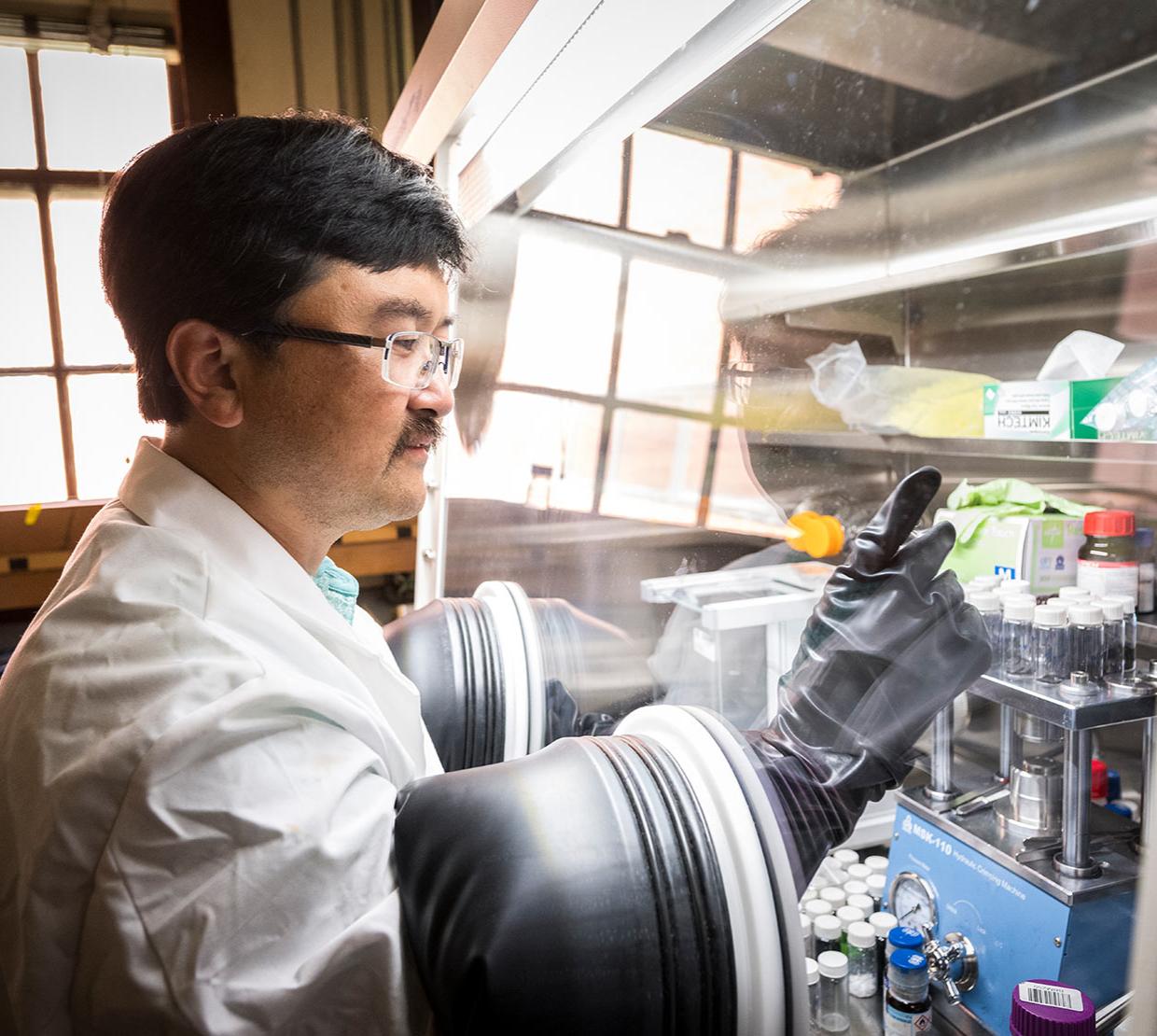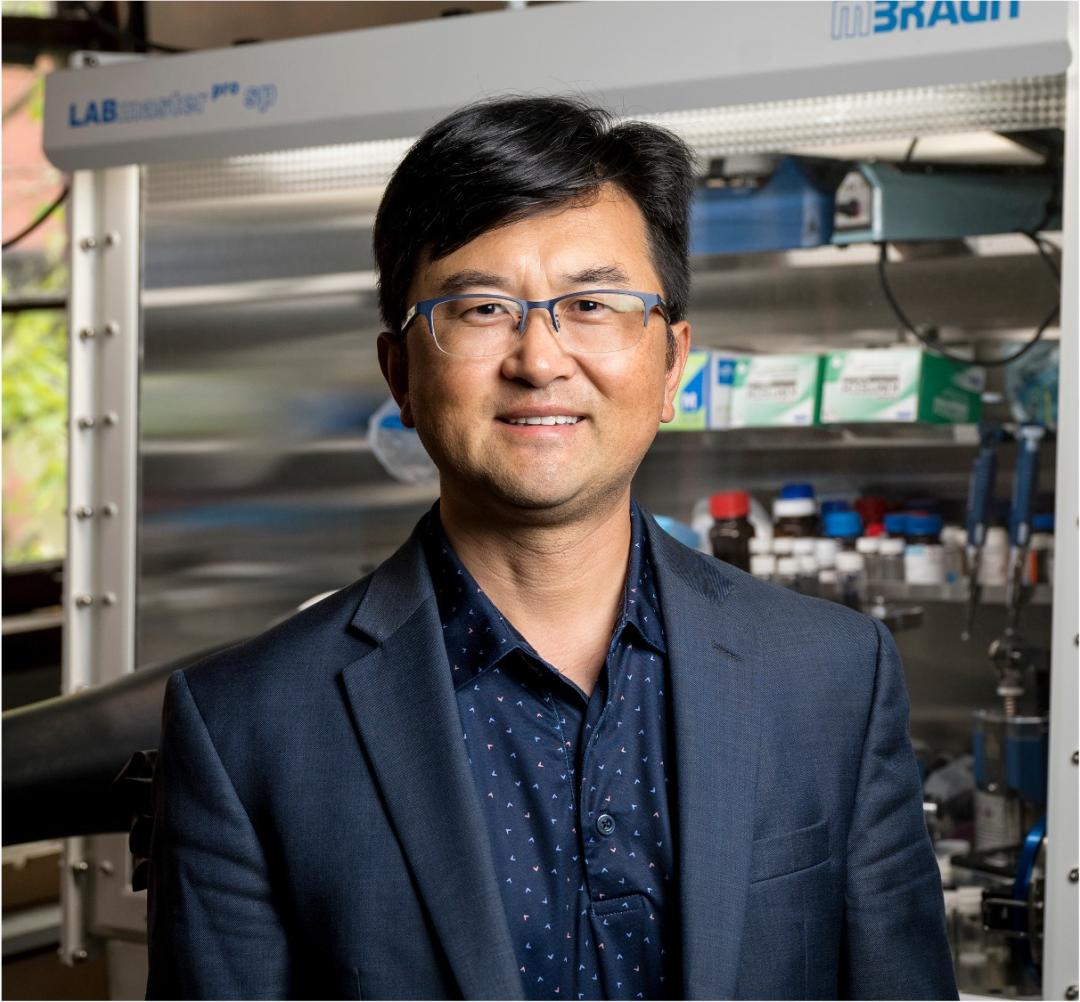In the pursuit of large-scale, reliable, safe, environmentally sustainable and affordable electricity storage, chemist Xiulei “David” Ji is part of a collaborative, interdisciplinary team funded by the U.S. Department of Energy.
The DOE announced $125 million in funding will be awarded to two energy hub teams to provide the scientific foundation needed to accelerate the next generation of energy storage technologies. Ji is part of the Aqueous Battery Consortium (ABC) which comprises energy storage experts from 15 research institutions across the United States and Canada. Oregon State will receive $1.35 million in funding.
The researchers are excited about the possibility of a new kind of aqueous battery, a type of battery that will use water-based solutions as the electrolyte, the medium through which electric charge moves inside the battery. This type of battery has numerous benefits including being safer, more environmentally friendly and possibly cheaper than traditional batteries like lead-acid or lithium-ion batteries.
The Department of Energy emphasized that advancing research is critical to the U.S. economy and leadership in transforming electricity storage and usage, and noted that recent awards equip teams to tackle key challenges in decarbonizing transportation and integrating clean energy into the grid.
“To get the whole energy storage crisis fixed, we need chemists, engineers, and entrepreneurs. So, it’s going to be a collective effort for everyone,” Ji said.
Ji is responsible for groundbreaking work in battery science, particularly in sustainable battery and energy storage techniques. His work has not only advanced scientific understanding but has also had a profound impact on the broader scientific community, both within and outside the academic sphere.
He has consistently introduced innovative approaches, particularly in battery chemistry. His recent studies on zinc and iron metal batteries have fundamentally shifted how scientists approach energy storage, offering the potential to transform the industry by utilizing more abundant and cost-effective materials. These advancements, published in high-impact journals like Science Advances, have positioned Ji at the forefront of global battery research.
To learn more about the Aqueous Battery Consortium or the Energy Innovation Hub team click here.





